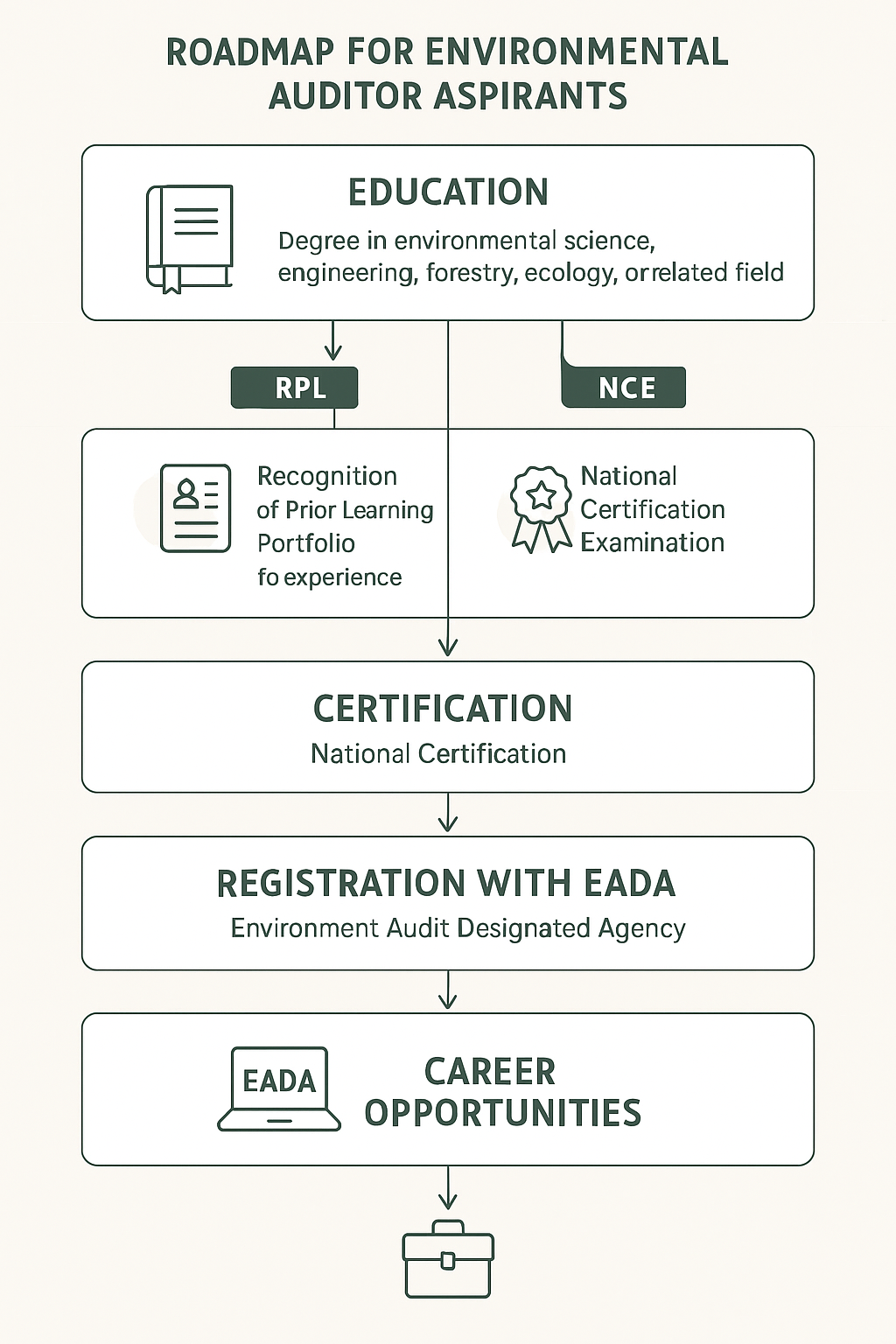Introduction
The Environment Audit Rules 2025, notified by the Ministry of Environment, Forest and Climate Change (MoEFCC) on 29th August 2025, introduce a structured framework for environmental auditing in India. For aspiring professionals, this reform defines the pathway to becoming certified and registered as Environmental Auditors.
This guide is designed specifically for aspirants—outlining what certification involves, the skills required, and the opportunities available in this growing profession.
Why This Profession Matters
Independent environmental audits are now at the core of India’s compliance system. With industries expanding, regulators face capacity limitations. Certified auditors will fill this gap by:
Providing unbiased compliance checks
Verifying self-compliance reports and environmental statements
Auditing under Green Credit and Waste Management Rules
Ensuring transparency and accountability through random assignment of audits
For aspirants, this means strong demand and a meaningful career path aligned with sustainability.

Roles and Responsibilities of Environmental Auditors
As a future Registered Environmental Auditor (REA), your work will include:
Conducting third-party audits for industries and infrastructure projects
Sampling and analyzing emissions, effluents, and waste
Evaluating compliance with laws and environmental standards
Calculating penalties and compensation for non-compliance
Supporting verification under Green Credit and Extended Producer Responsibility (EPR) rules
Upholding independence, confidentiality, and ethical practices
Certification Pathways for Aspirants
There are two certification routes under the Rules 2025:
Pathway | Who It Is For | What You Must Do |
|---|---|---|
Recognition of Prior Learning (RPL) | Professionals with strong experience in compliance, monitoring, or audits | Submit documented experience, references, portfolio of past work for evaluation |
National Certification Examination (NCE) | New entrants who meet educational eligibility but lack formal experience | Appear for the certification exam conducted by the Environment Audit Designated Agency (EADA) |
Note: Certification is only valid after registration with EADA. Only registered auditors can practice.
 Eligibility Criteria for Aspirants
Eligibility Criteria for Aspirants
Education: Degree in environmental science, engineering, forestry, ecology, or related field
Experience (for RPL): Demonstrated background in compliance or auditing work
Additional Skills: Technical knowledge of environmental standards, reporting, and auditing practices
Skills and Qualities to Develop
As an aspirant, focus on building:
Legal & Technical Knowledge: Environmental laws, standards, and compliance mechanisms
Audit Methodologies: Principles, procedures, reporting, and corrective action frameworks
Practical Exposure: Field sampling, lab analysis, and monitoring practices
Ethics & Independence: Avoiding conflict of interest, ensuring transparency
Soft Skills: Report writing, stakeholder engagement, data interpretation
Continuous Learning: Regular updates through training and capacity-building by EADA

Career Prospects for Environmental Auditors
Certified auditors will find opportunities across sectors, including:
Manufacturing & Heavy Industries – textiles, chemicals, mining, energy
Infrastructure & Services – construction, IT parks, logistics hubs
Consultancies – ESG reporting, carbon audits, sustainability assessments
Compliance & Waste Management Firms – handling E-waste, plastics, biomedical waste
With growing focus on Green Credit, EPR, ESG, the demand for certified auditors will only rise.
Key Takeaway for Aspirants
To build your career as an Environmental Auditor under Rules 2025:
Choose your certification pathway (RPL or NCE).
Strengthen your technical, legal, and auditing knowledge.
Prepare a portfolio of experience if applying via RPL.
Register with EADA after certification to practice officially.
Commit to continuous training and uphold professional ethics.
Conclusion
The Environment Audit Rules 2025 have transformed the way environmental compliance is managed in India. For aspirants, this is both a challenge and an opportunity. By meeting eligibility requirements, obtaining certification, and developing strong auditing skills, you can become part of a growing cadre of professionals ensuring India’s industries stay aligned with sustainability and compliance goals.